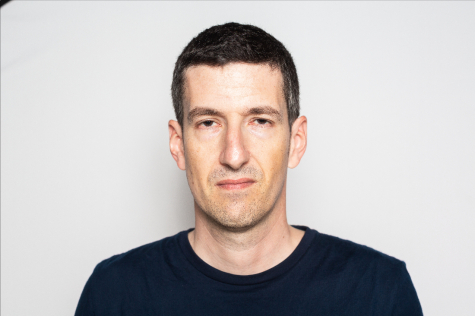Newby: What the #MeToo movement is still making room for
Nimrod Reitman, a male graduate student, files a Title IX complaint against his graduate school advisor Professor Avital Ronell, a female faculty member, and the university finds her responsible.
August 27, 2018
A graduate student at New York University stepped into the spotlight with testimony in hand when an 11-month Title IX investigation was completed in May into his professor. The details of the allegations were familiar — hidden harassment and silenced stories of sexual assault.
And then, there was the knee-jerk reaction of the public leaping to defend the accused with references of titles, status, and award nominations as a way of compensating for the foolish behavior that had been unfolding behind closed doors for months — years, even.
Nimrod Reitman, a male graduate student at NYU, came forward in allegations against his professor, Avital Ronell — an acclaimed, world-renowned female professor of German and comparative literature at NYU.
This story is one drenched in familiarity. It comes with trepidation and perseverance. And with every testimony tethered to truth people are hesitant to hear, it comes with resistance.
The difference between this case and most of the stories that have surfaced in the #MeToo movement is that here the accused is a feminist scholar and the one reporting the sexual harassment is a former male student.
Reitman filed his Title IX complaint two years after graduating from NYU with a Ph.D., alleging sexual harassment, sexual assault, stalking, and retaliation from his graduate adviser. His complaint mirrored the many that roared into the media’s spotlight after the #MeToo movement exploded last fall.
According to the New York Times, upon receiving the Title IX interviews in the investigation, Reitman was afraid of his professor and the power she attained, and so he often went along with behavior that frequently left him feeling violated and uncomfortable. Meanwhile, Ronell contended that Reitman desperately sought her attention.
At the completion of the Title IX investigation, Ronell was suspended from teaching for the upcoming academic year. And in response to this news, waves of cross-country scholars, NYU faculty, powerhouse feminists, and more poured in their support for Ronell.
Those supporting Ronell in wake of accusations against her pointed to her witty personality, her international standing, and her reputation as a defense against such sullied actions. They try to pin her name to power and refuse to allow her titles to be placed beside suggestions of power abuse.
People deserve to be heard, and they deserve their healing journey to begin.
The parallel with this case and nearly every other story brought out of the shadows and into the light of the #MeToo movement is this: The accused stands on mounds of support solely found in status, power, wealth, and opportunity, while the people filing reports and filling their testimony with great detail are hit with poisonous blame.
The story is the same regardless of the accused — women are fully capable of abusing their power.
Therefore, the hesitation to hear the story, and the inability to offer adequate support in response to an allegation is not a gender problem, it is a power problem. And men and women alike deserve the certainty that others will not only believe and listen to the stories they tell, but that others will come alongside with courage and grace, offering the means necessary for their healing journey to begin.
Resources such as Rape Victim Advocacy Program and Iowa Coalition Against Sexual Assault are easily accessible to University of Iowa students and those local to Iowa City as well as RAINN — the nation’s largest anti-sexual-violence organization.
So let’s rally and listen, providing comfort in our abilities to see a story through to its end and meet heavy testimonies with the honorable truth: People deserve to be heard, and they deserve their healing journey to begin.
















